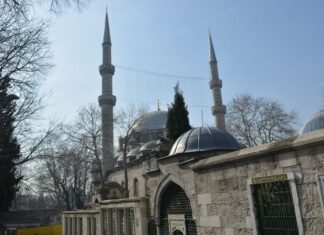31. In matters of this kind, history is apt to repeat itself. You find the same sort of things happening, the same sort of things being said. In this case, men differed widely in their opinions about the empress, and a constant stream of propaganda was directed against her. The result was a second decree, to the effect that she must now take the veil of a nun. Without more ado, this order was also carried out, and the empress’s career was brought to an abrupt conclusion.
32. Diogenes, meanwhile, instead of rejoicing in his deliverance, was filled with chagrin at the prospect of losing his throne. Actually, a large body of soldiers had already flocked to his standard, and as he moved from place to place, with the comforting knowledge that there was no one to oppose him, he appropriated to his own use the money from the public funds. Finally he arrived with his army at the famous city of Amasea, the place that everyone is talking about.
Commander-in-chief of the Roman army
33. Michael’s immediate answer to this was to appoint the Caesar’s younger son**275 commander-in-chief of the Roman army. The new general was a man of great energy, blest with a quick wit and a [276] remarkable flair for discerning the right course of action, and for explaining it in language that all could understand. Having approached the city — Diogenes had already established himself in Amasea — he first concentrated his army.
This done, he began series of skirmishes, using all manner of wily tricks in order to capture his opponent, or else drive him out of the city. As his position grew steadily worse, Diogenes made a daring sally and drew up the whole of his forces in battle-array against the attacker. In the ensuing struggle, both sides suffered considerable losses.
Our general charged the enemy like a horseman on wings, and falling on the hostile ranks, a veritable tower of strength, forced them back and smashed their line in many places. Some of those who resisted fell fighting on the battlefield, others were captured, while a small number escaped by flight. Among these last was Diogenes, riding as fast as his horse could carry him. For the first time we had reason to feel confident in the future.
Read More about Eudocia 1067 part 19








